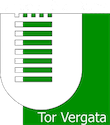L’écriture inclusive, la théorie de « masculinisation » du français et l’imposture intellectuelle.
Keywords:
écriture inclusive, masculinisation, imposture intellectuelleAbstract
This article reports on the controversy surrounding the phenomenon commonly known as "inclusive writing". The expression "inclusive writing" refers to a set of phenomena of various kinds, notably lexicon, spelling and morphosyntax. These three areas are seen as vectors of discriminatory injustice that 'invisibilises' women. Therefore, according to some experts, an intervention on language is desirable to repair the harm done to women. Moreover, this intervention is based on a 'masculinisation theory' of French introduced and defended by Elianne Viennot. This article offers a synthetic summary of the theses put forward by the proponents of all these assertions and their critical examination based on linguistic epistemology, the history of language and the philosophy of language. It defends the idea of the uselessness of "inclusive writing" by attempting to show that the enterprise of "inclusivisation" of writing is based on highly debatable, contradictory and often fanciful linguistic premises.
Downloads
Published
How to Cite
Issue
Section
License
Copyright (c) 2021 Grinshpun

This work is licensed under a Creative Commons Attribution-NonCommercial-ShareAlike 4.0 International License.







